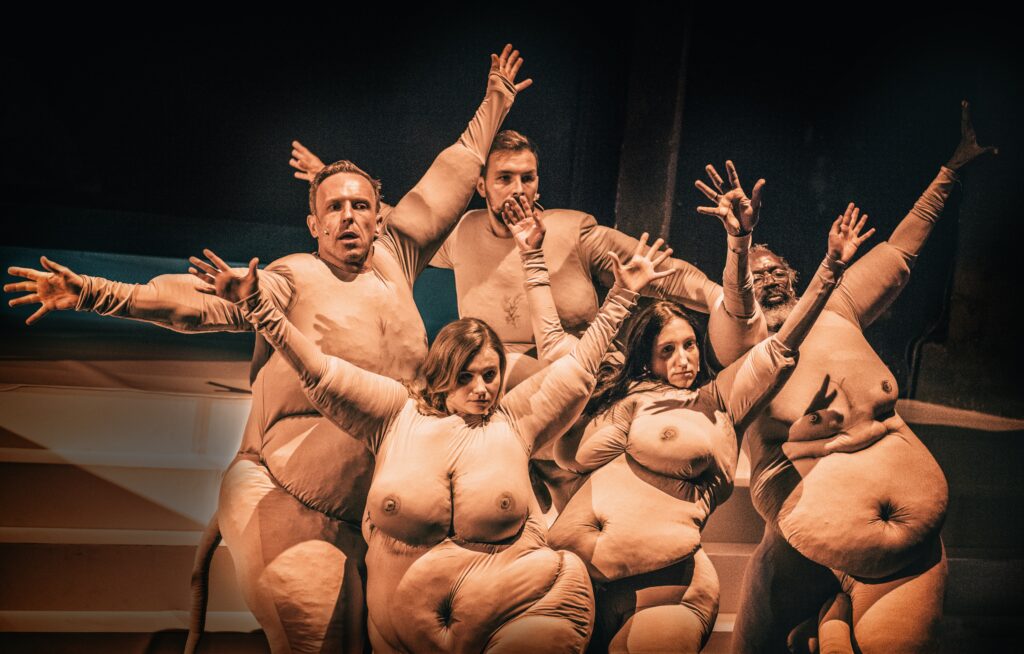To celebrate the 30th anniversary of Estonia’s restoration of independence, the Vaba Lava Narva Theatre Centre will host the International Freedom Theatre Festival from 17 to 21 August 2021; the programme includes several productions that are forbidden in their respective homelands.
The festival’s programme includes productions by small theatres from countries where the freedom of speech has been curbed and where the theatre makers have been exposed to censorship that restricts their creative activity. According to the organisers, this is also an issue in Europe, “where censorship is increasingly affecting free creation”.
“Quintessential place”
The festival’s curator Märt Meos said in a statement that Narva was the “quintessential place” to organise an international festival with such a thematic focus.
“It is located on the border of two different civilisations – on the one hand, the free world ends in Narva; and from another perspective, it is once again the starting point of the free world,” he said, referring to the fact that Narva sits on the Estonia-Russia border.
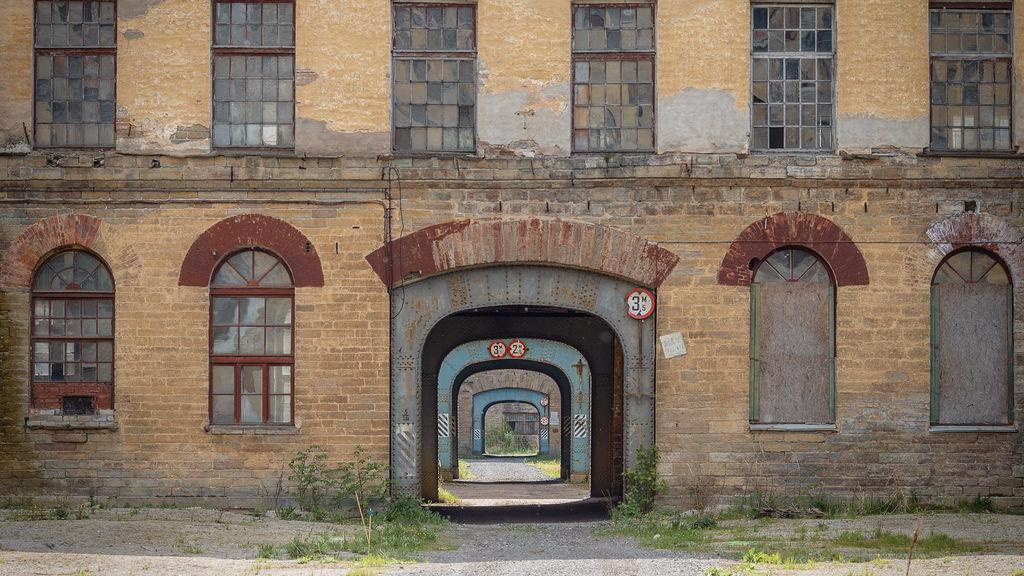
“Freedom is no longer just an empty word. During the last year, we have not even been able to go to the theatre freely. Hopefully, it will change by August and we will be free to celebrate the 30th anniversary of the restoration of [Estonia’s] independence with the Freedom Festival,” Meos said.
Banned productions
The festival programme includes several banned or controversial productions in their respective countries, including “Mein Kampf” by the Polish Powszechny Theatre (directed by Jakub Skrzywanek), “Sacra Hungarica” from Hungary, “Rovagen” from Romania and “Fools’ Court” from Tajikistan.
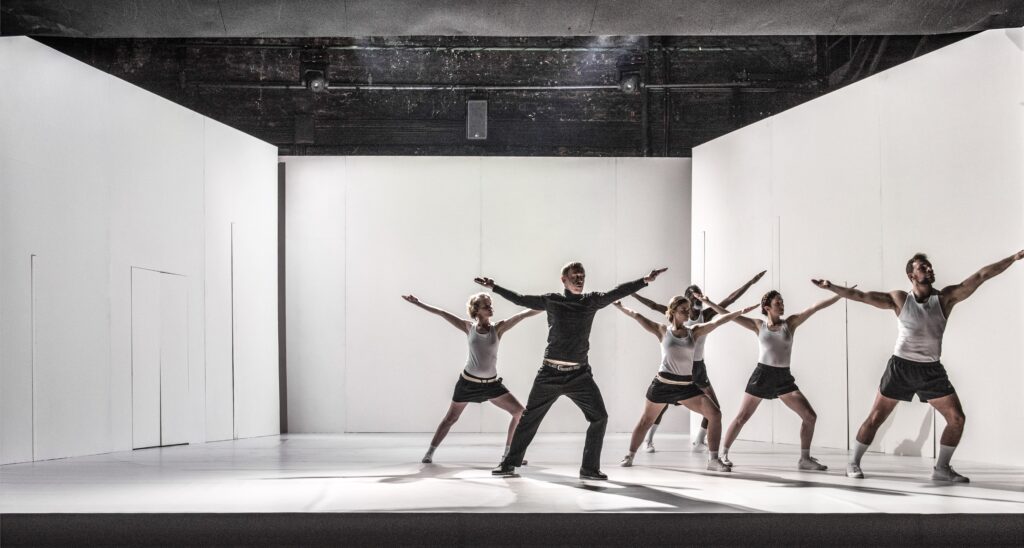
In the Russian-Austrian collaboration, “Chow Down”, the relationship between food and politics is examined. The starting point for Andrei Stadnikov’s surrealistic play is the Russian sanctions imposing a full embargo on food products from the European Union, the US, Australia, Canada and Norway.
Using fragments of already existing texts, Stadnikov’s play allows the audience to bear witness to a cabinet meeting deciding to destroy illegally imported EU food – considered almost a blasphemy by the ordinary people, in the light of Russia’s long history of famine.
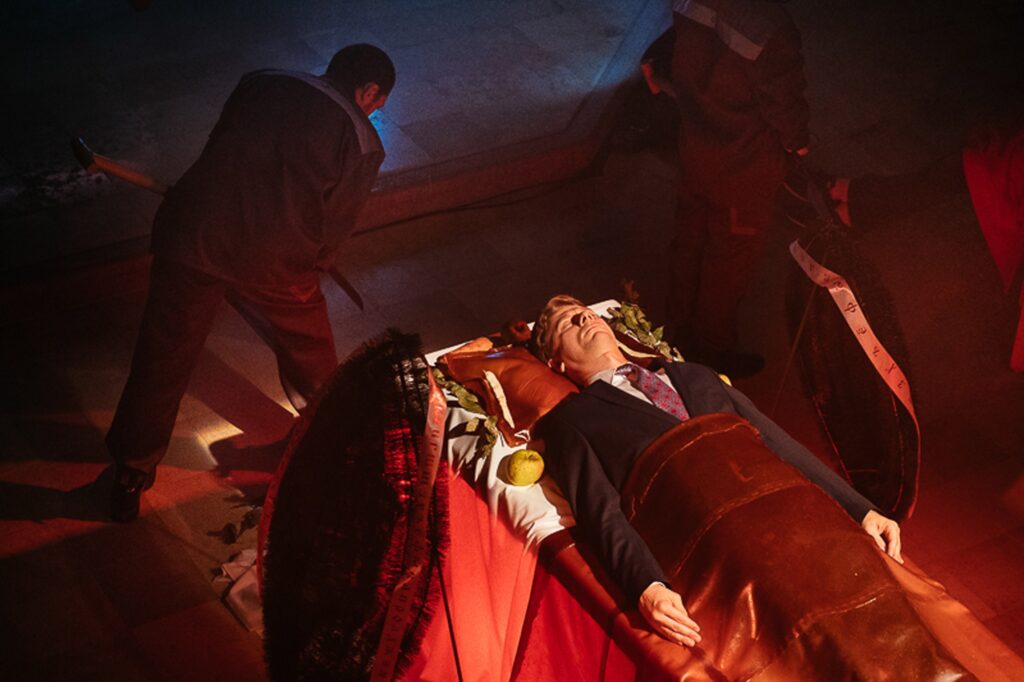
“Stadnikov then imagines a funeral table for a recently deceased leader of the same country, where funeral speeches and ritual meals overloaded with pathos are interrupted by ghostly lists of products confiscated and destroyed at the border. The production has been performed only once, at a theatre festival in Austria, but in Russia, ‘Chow Down’ is still banned,” the festival’s organisers said.
Russian theatre
Censorship and lack of freedom is also addressed in Zenja Muha’s staging of “Invisible Families”, based on interviews with Russian LGBT families. In 2013, the Russian State Duma passed a law banning a “homosexual propaganda”, which severely restricted the freedom of expression and assembly of LGBT organisations. In 2020, an amendment to the law was introduced banning same-sex families and particularly the presence of children in such families. Muha’s production explores how these “invisible” families, who live in constant fear, manage.
The festival also brings to Narva a production named “Kantgrad” by the Russian documentary theatre, Theatre.doc. The production is based on interviews with residents of Kaliningrad – formerly known as the German city of Königsberg that was captured by the Soviet Union and placed under its administration in 1945.
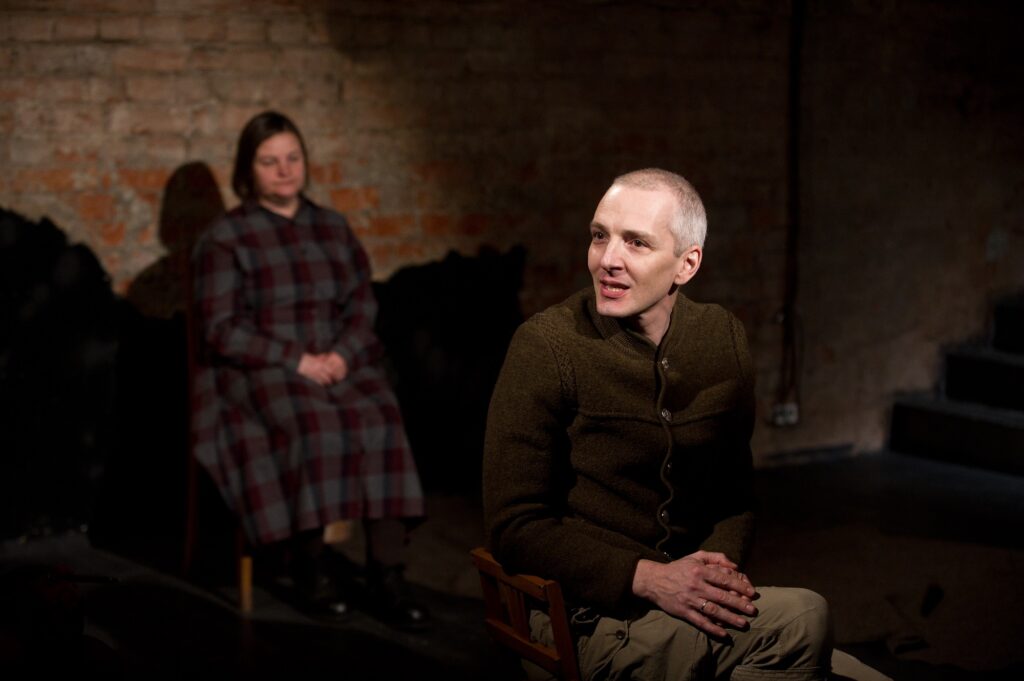
“Teater.doc has been one of the most persecuted theatres in Russia due to its bold productions. Their productions have been banned, members of the theatre have been arrested and the theatre has repeatedly had to change venues because renters fear disapproval and subsequent actions from the authorities,” the festival’s organisers noted.
The festival, supported by the Narva municipal government and Estonia’s Integration Foundation, also features concerts, with various countrywide and local performers. The stage productions will be performed at Vaba Lava Narva Theatre Centre, Rugodiv Cultural Centre and at the former Kreenholm industrial complex.
Narva is located 195 kilometres (121 miles) from Tallinn, at the eastern extreme point of Estonia. With approximately 57,000 inhabitants, mainly Russian speaking, it is the country’s third largest town.
Cover: A scene from “Mein Kampf” by the Polish Powszechny Theatre. Photo by the Narva Freedom Theatre Festival.

